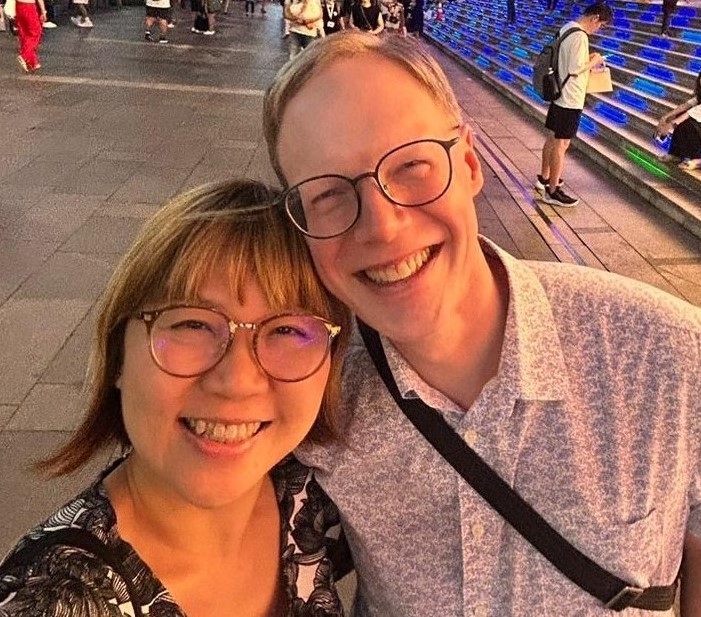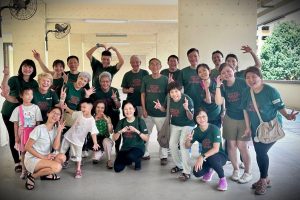By David Blakely
Caring for ageing parents is exhausting. My wife and I experienced this through caring for my father-in-law, who is diagnosed with mild dementia. It is a unique, meaningful, yet both physically and emotionally exhausting journey.
My hope is this article can offer some practical suggestions, reminders or handles to fellow caregivers so that each one of us can continue to fulfill our hope to honour God, show love and respect for our family, and also care for ourselves in a meaningful way.
Here are four suggestions:
Acknowledge caregiving is an important and big burden
It is very important for the caregiver to acknowledge that they are the caregivers, with a heavy burden and responsibility to carry out.
Many caregivers often minimise, diminish or dismiss their own burdens. They might tell themselves that the effort they are making as a caregiver is not enough or equal to what other caregivers are doing. In doing this, they undermine the amount of physical and emotional energy that they are pouring in to express love to individuals who could not fully comprehend or appreciate what is happening to them.
Therefore, it is important to acknowledge what you are doing and feeling:
“Yes, I am a caregiver. And yes, it is a demanding role to hold.”
“Yes, I feel tired.”
Have a community to support you
The importance of community can never be over emphasised.
However, the challenge with having a community is that in the midst of caregiving for a parent or relative with dementia, there is little time for the caregivers to even find time for themselves. This means that often it might be difficult to physically meet with your friends or community of support.
Fortunately, these days we have technology to help us. Caregivers can connect with their community through Zoom or WhatsApp.
For some caregivers, the community might mean their close friends or church small groups. For others, it could be one of the support organisations listed later in this article.
Essentially, the key is for the caregivers to have someone they could reach out to, even if it is just a text message. Others could also reach out to them with simple messages such as “Hey, I’m thinking of you” or “You are in my prayers today.” Yet others might bring the caregivers their favourite drinks or comfort food, or offer to run an errand for the caregivers.
Such small gestures can make a difference for the caregivers, and remind them they are also remembered and cared for by their community.
Schedule me time for yourself
It is paramount for caregivers to be able to have some emotional rest and a mental break.
So the third suggestion is to re-look at how caregivers can schedule their day to have 15 to 30 minutes of me time, time meant just for and/or by themselves.
A few fellow caregivers have suggested that this could go as far as hiring somebody to come in and take care of the relative with dementia, so that the caregiver can have some time to take an extended nap, long shower, nice meal or run an errand.
The key to this suggestion is to allow the caregivers to have the opportunity to set aside the weight of duty and expectations for respite.
Find your own purpose and meaning in life
Finally, it is important for caregivers to continue to find purpose and meaning in their lives, beyond caregiving. Caregiving can be a round-the-clock, consuming role, often with little demarcations between night and day or duty and personal time. Having a purpose and meaning in life beyond the responsibilities as caregivers help them remember they are more than just the responsibilities, tasks and duties they have to carry out. Along with their duties as caregivers, God has made them holistic, unique individuals with their own interests and who find their own meaning in life. Depending on their interests and schedule, this could mean taking up less demanding Bible studies, cultivating light hobbies or doing things that one enjoys, such as planting, painting, listening to music, taking walks or baking. For some caregivers, it could be just the simple joy of having a cup of teh si with a book on a comfortable chair or at a favourite café.
I hope that the above suggestions will encourage each caregiver to take a small step towards further self-care. As you look after someone close to you, remember that even as you have an important role to play, you are also precious in God’s sight.
God has promised us that He has made us and He will not forget us in Isaiah 44: 21.
For further support and more resources on caregiving, please visit: Caregivers Alliance: https://www.cal.org.sg
Read also: ‘God cares for me while I care for my mother’: A Caregiver’s Journey







